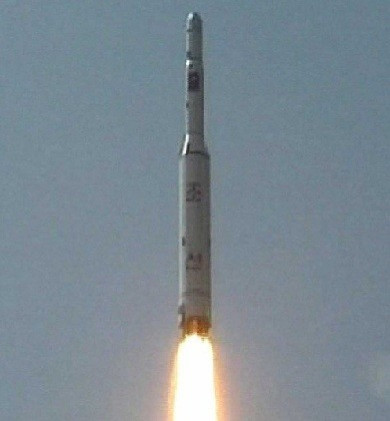North Korea Rocket Launch Failure: Countries Hunt For Debris To Learn Technology Used In It

Barely minutes after takeoff, North Korea's rocket exploded scattering debris over the Yellow Sea, triggering an international search as the US and other countries believe that the debris could be a mine of information to assess the reclusive country's nuclear and missile capabilities.
Several countries, including the US, Japan and South Korea, have sent search teams to the region to trace the debris of the satellite and rocket as, they believe, it would help them get an insight into the technology used by North Korea in its rocket and satellite.
As of now, the West and other countries have no clue of North Korea's real capabilities in both missile and nuclear weaponry front. Therefore, scrutiny of the debris can provide crucial information on the exact status of the country's space and ballistic missile technology.
South Korea confirmed that its vessels and helicopters were scanning the area in the sea where the rocket was supposed to have crashed.
After flying 120 km (75 miles) from its launch site close to the Chinese border, the rocket crashed in the Yellow Sea that separates the Korean peninsula from China off the west coast of South Korea, Reuters reported quoting South Korean officials.
South Korea said that the rocket split into 20 pieces as the first and second stages failed to separate and this indicates that the rocket could not travel even the distance traveled by its predecessor in 2009, according to the Reuters report.
The US and Japan have deployed their ships in the region and are also studying the rockets trajectory and other details to gather more information on the North's capabilities, according to a CBS News report.
North Korea had announced it would launch the rocket to commemorate the centenary birth celebrations of its founder president late Kim II-Sung. The country defied international pressure and went ahead with its rocket launch which it claimed was for peaceful purpose.
Through a brief announcement on the state TV, North Korea confirmed that the launch was a failure as it could not enter the target orbit and said that scientists and experts were examining the reasons for the failure. The Kwangmyongsong-3 (meaning bright shining star) satellite was launched at 7:38 am Friday from the Sohae Satellite Launching Station in Tongchang-ri along the west coast of North Korea.
Nevertheless, now the rocket has miserably failed, as expected by international experts, the world is closely watching whether North Korea will follow it up with the nuclear tests, as it did in the past. The country is known for its unpredictable behavior and observers feel that it might observe how strong the international reactions for the rocket launch are before heading for the nuclear test.
Rather than any conventional provocation, I think North Korea will watch what the US and South Korea are doing and prepare for a nuclear test, Chung Young-chul, a professor at Sogang University's Graduate School of Public Policy told Reuters.
International leaders have condemned North Korea for going ahead with its rocket launch. The US, Japan, Australia and Russia have said that North has violated the UN resolutions and its action is provocative.
In a statement, the US said, Despite the failure of its attempted missile launch, North Korea's provocative action threatens regional security, violates international law and contravenes its own recent commitments.
North Korea's neighbors, who were on high alert, are relieved after the launch failure and have lifted ban on fishing and ship movement in the area, according to a CNN report.
© Copyright IBTimes 2024. All rights reserved.






















